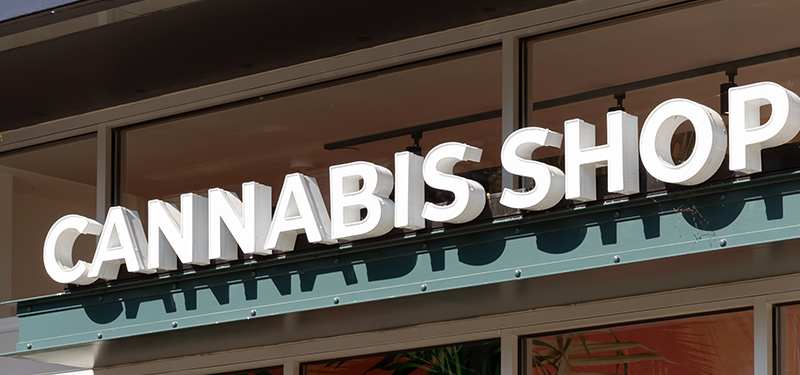On Monday, August 29, 2022, the Boston Planning & Development Agency (“BPDA”) held a public meeting to discuss a proposed amendment to the Boston Zoning Code that would potentially change a “Cannabis Establishment” from a Conditional Use to an Allowed Use in commercial and business subdistricts (the “Zoning Amendment”).
The nature of the change in the proposed Zoning Amendment would remove the ZBA siting, hearing, and approval process from the requirements for creating a Cannabis Establishment because zoning relief is not required for Allowed Uses.
Presently, the Zoning Code lists Cannabis Establishments as a Conditional Use in the Local Business, General Business, Restricted Industrial, General Industrial, Maritime Economy Reserve, and Waterfront districts with the caveats that 1) no Cannabis Establishment may be closer than one-half mile from another existing Cannabis Establishment and 2) Cannabis Establishments must be at least 500 feet away from any pre-existing public or private school. Cannabis Establishments are currently, and will remain, forbidden in residential districts. The Conditional Use designation means that all applicants seeking to open a Cannabis Establishment within the City of Boston must complete an application process with the Boston Cannabis Board (“BCB”), the regulatory board established to review licensing applications and ensure equitable regulation, as well as the Boston Zoning Board of Appeals (“ZBA”), the body charged with addressing siting concerns for new developments and ensuring zoning compliance. All applicants must receive approval from both bodies before proceeding to the State level for approval from the Cannabis Control Commission (“CCC”).
The Ordinance that created the BCB (passed in 2019) also created the Boston Cannabis Equity Program, implemented by the Mayor’s Office of Economic Opportunity & Inclusion, which works to equalize representation in the burgeoning cannabis industry by providing technical assistance and grants to eligible Equity Applicants. The proposed Zoning Amendment has been spurred by concerns that the current siting and permitting processes for Cannabis Establishments in Boston largely prevent Equity Applicants from achieving a fully permitted, viable business because the expensive and lengthy process favors applicants with more substantial resources, even accounting for the assistance provided by the Equity program.
The nature of the change in the proposed Zoning Amendment would remove the ZBA siting, hearing, and approval process from the requirements for creating a Cannabis Establishment because zoning relief is not required for Allowed Uses. Under this proposal, all applicants would submit for licensure via the BCB and, upon approval, move forward to the CCC.
Both Boston City Councilor for District 8, Kenzie Bok, and At-Large City Councilor, Michael Flaherty, expressed reservations about the Zoning Amendment during the public meeting. Public comments were also offered, a number of which expressed concerns over the proposed Zoning Amendment, while others expressed support for removing barriers to inclusion in cannabis development.
Those that questioned the contents of the proposed Zoning Amendment highlighted a few specific issues, including:
• The Zoning Amendment, in its current form, will delete the caveat regarding the half-mile minimum between Cannabis Establishments and the minimum distance from schools
o It was noted that part of the initial justification for the minimum distance between Cannabis Establishments was to prevent individual neighborhoods from having a disproportionate number sited within a limited area
• Many of the subdistricts in which Cannabis Establishments would become an Allowed Use are areas that are mixes of residential and commercial/business uses, and residents may have concerns regarding the siting of Cannabis Establishments near their homes
• A number of areas restrict restaurants and liquor stores and other similar operations to Conditional Uses; conversion of Cannabis Establishments to an Allowed, rather than a Conditional, Use may allow Cannabis Establishments to bypass reviews and community outreach that remains a requirement of other uses
Those in support of the Zoning Amendment highlighted challenges with the current process and ways in which it could be improved, including:
• The ZBA is not a regulatory board with specific, subject-matter expertise, often creating difficulties for applicants then obligated to demonstrate the validity (and legality) of their proposal
• The BCB does not currently address questions of siting and zoning for Cannabis Establishments, but it potentially could include those criteria in its consideration, both streamlining the applicant’s process and considering the location and local interests
• ZBA involvement has included ideological stances on cannabis that are not supposed to be a consideration or a basis for denial
• The issues arising from the ZBA portion of the permitting process have resulted in at least one lawsuit, which the ZBA lost, and could potentially cause substantial legal exposure for the City
Based on this meeting, the BPDA Staff will determine whether to present the Zoning Amendment to the BPDA Board. If the Zoning Amendment is presented to and accepted by the BPDA Board, the proposal will be sent to the Boston Zoning Commission, which will also include a public hearing component.
Copies of the proposed amendment, available in six languages, and the recording of the public meeting are available through the BPDA website. The BPDA is currently accepting comments on the proposed amendment through Friday, September 9, 2022, which should be submitted via email to BPDArpz@Boston.gov.


